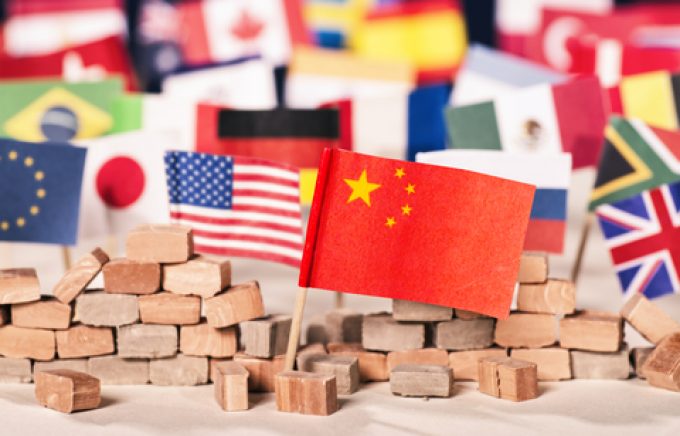RTR: Germany arrests three people suspected of giving technology to China
REUTERS reports: Three Germans have been arrested on suspicion of working with the Chinese secret service ...

China is moving to shore up its supply chains as concerns grow over western withdrawals, even as volumes surge on some of its new rail routes.
Addressing the Central Economic Work Conference in Beijing this week, China’s leadership said it would move to strengthen supply chain resilience to stave off further losses of international shippers amid increased competition from India and Mexico.
What moves would be made was not made public, but the announcement came as China’s November export figures showed negligible year-on-year growth following six months of shrinkage.
State-owned Xinhua reported that the leadership said: “China still has to overcome some difficulties and challenges to further revive the economy, [but] it achieved a recovery, with solid progress made in high-quality development in 2023.”
An official from the Central Committee for Financial and Economic Affairs told the also state-run China Daily the country was still responsible for more than 14% of global exports.
But industries the official cited for action included automotive, a sector in which the US has sought to reshore sourcing through measures tied to passage of the Inflation Reduction Act, which seemingly scare the Chinese leadership, which responded to the news with a plea for globalisation.
Under the act, from January no US-manufactured electric vehicles with Chinese-made battery components will be eligible for the full subsidies offered by the $370bn climate bill.
While some have suggested the move by President Biden would delay the onset of cleaner vehicles, others have praised it, with suggestions the spur to domestic car manufacturing may re-energise US enthusiasm for green transport.
American business is also voting with its feet: 61% of those polled by the Department of Commerce’s office of textiles and apparel said China was no longer their top supplier.
This increased willingness to abandon China has been pegged to both increased costs of working in the country, as well as concerns over China-US tensions, with 73% of those moving out telling the US-China Business Council these were the main factors behind the decision.
Furthermore, China has lost the only G7 country to join its Belt and Road Initiative, after Italy last week said it would not be renewing the agreement when it expires in January
However, while its connections to the west may be eroding, China has seen some areas of growth, with rail freight volumes with Azerbaijan having increased by 47% over the past 12 months, according to Azerbaijani media sources, and similar growth on newly opened rail routes with Russia and through Caucus countries, avoiding sanctioned transiting to Europe by Russia.
Comment on this article